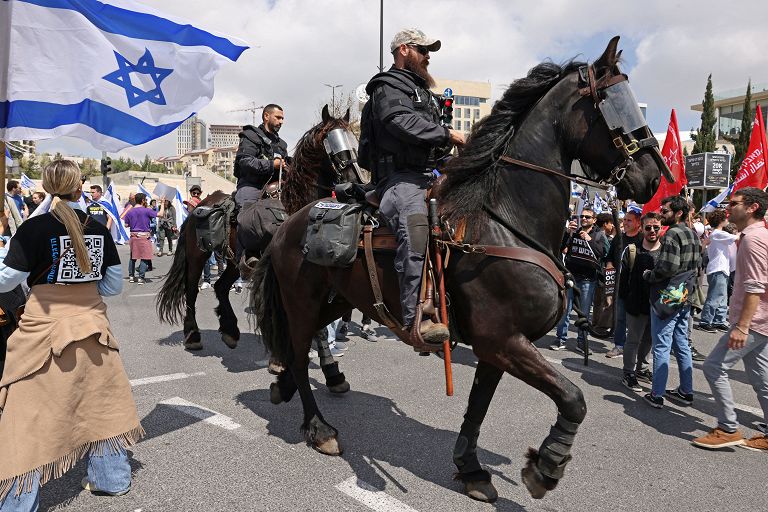A few days after a massive protest against the reform of the law on justice, a protest that Israel had not seen for years and stopped only with the putting on hold of the measure by Prime Minister Netanyahu, the ministers today approve the financing for the establishment of a National Guard Corps. The measure was anticipated by a rain of criticism both from the opposition and from the police themselves, as well as from the state lawyer.
Provision even more criticized because the National Guard Corps, consisting of about 2000 men, should be directly dependent on the Minister of Security Itamar Ben Gvir and would cost the state budget well 255 million euros.
Israel's chief police inspector, Kobi Shabtai, and the country's attorney general, Gali Baharav-Miara, have come out as radically opposed to the national security minister's proposal. In an open letter published today, Shabtai warns that this proposal is not only "completely unnecessary", but could lead to "disastrous consequences" for the country. And the attorney general warns against the "legal problems" that this new force could entail.
Even the leaders of the Shin Bet and the attorney general of the state, said they were against it, also identifying a legal impediment due to the overlapping tasks of the police and the minister.
The Times of Israel reports that many ministers voted against the initiative, but voted in favor. The vote, Israeli media point out, would be a concession by Prime Minister Benjamin Netanyahu to Ben Gvir, in exchange for his stay in government despite opposition to Netanyahu's decision to suspend the legislative process of justice reform.
AFP
Israel, protests against justice reform continue
In the Arab territories, a general strike has been called due to the killing of an Islamic faithful at the end of prayers on the second Friday of Ramadan, near the Esplanade of the Mosques in Jerusalem. Protest marches are also planned.
According to police, 26-year-old Mohammed Elasibi unexpectedly seized an officer's gun, fired two shots at a group of nearby officers, and was then overpowered and killed. "There is no doubt that it was an attack," police chief Koby Shabtay said yesterday. The incident, according to the police, was not filmed by security cameras because it took place in a dead area, close to the Porta della Catena. Leaders of the Arab population in Israel accused the police of "killing Elasibi in cold blood" and called for the opening of a commission of inquiry into the incident. According to some Arab deputies, nothing in the biography of Elasibi (an Israeli Bedouin from the Negev who was about to graduate in medicine in Romania) suggested a person prone to violence.
"We are acting against terrorism by all means." "In recent months, our forces have eliminated dozens of terrorists and arrested hundreds more," Prime Minister Netanyahu said at his regular weekly Sunday cabinet meeting.
(ANSA)
Jerusalem, Israeli Prime Minister Benjamin Netanyahu
The political debate is therefore in great turmoil in Israel governed by the extreme right and opposed by the left opposition (Meretz and Labor parties) but also by the center-right. The 'uncertainties' of Prime Minister Netanyahu's Likud party during the protests were underlined by the words of former Prime Minister Yair Lapid, head of Yesh Atid.
But Netanyahu assures Israel's internal unrest will not affect his military skills and his ability to strike at his enemies.

